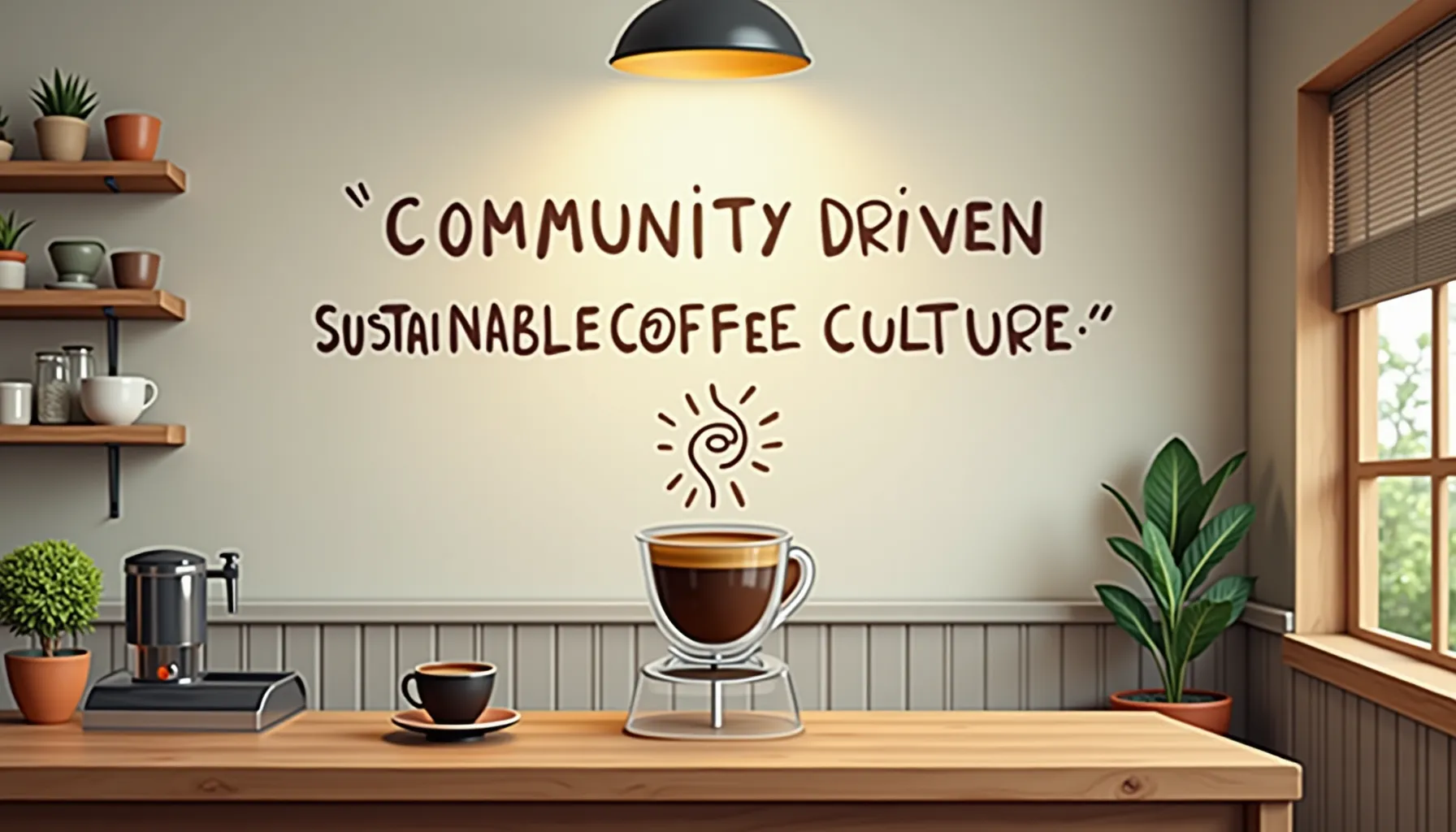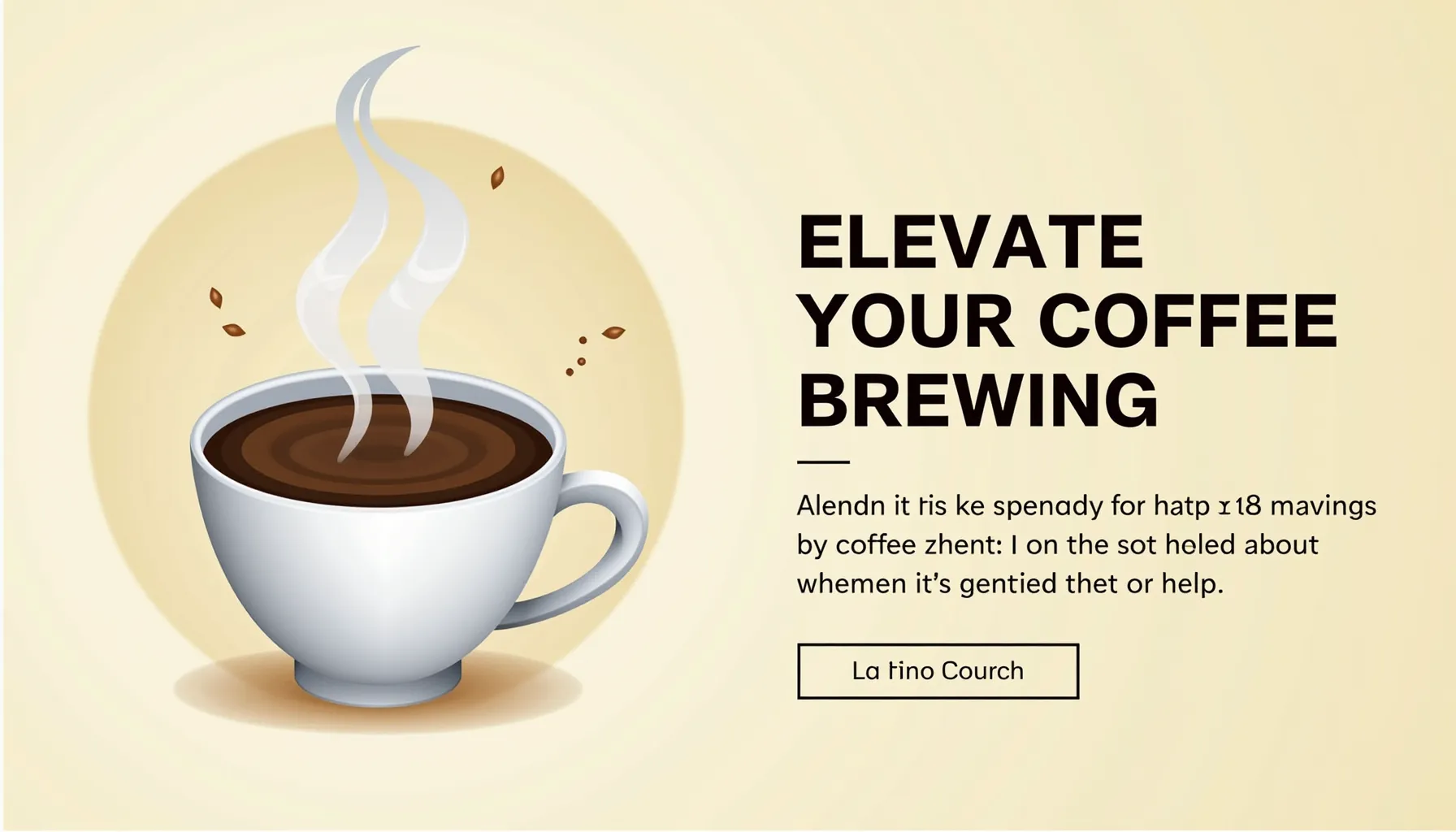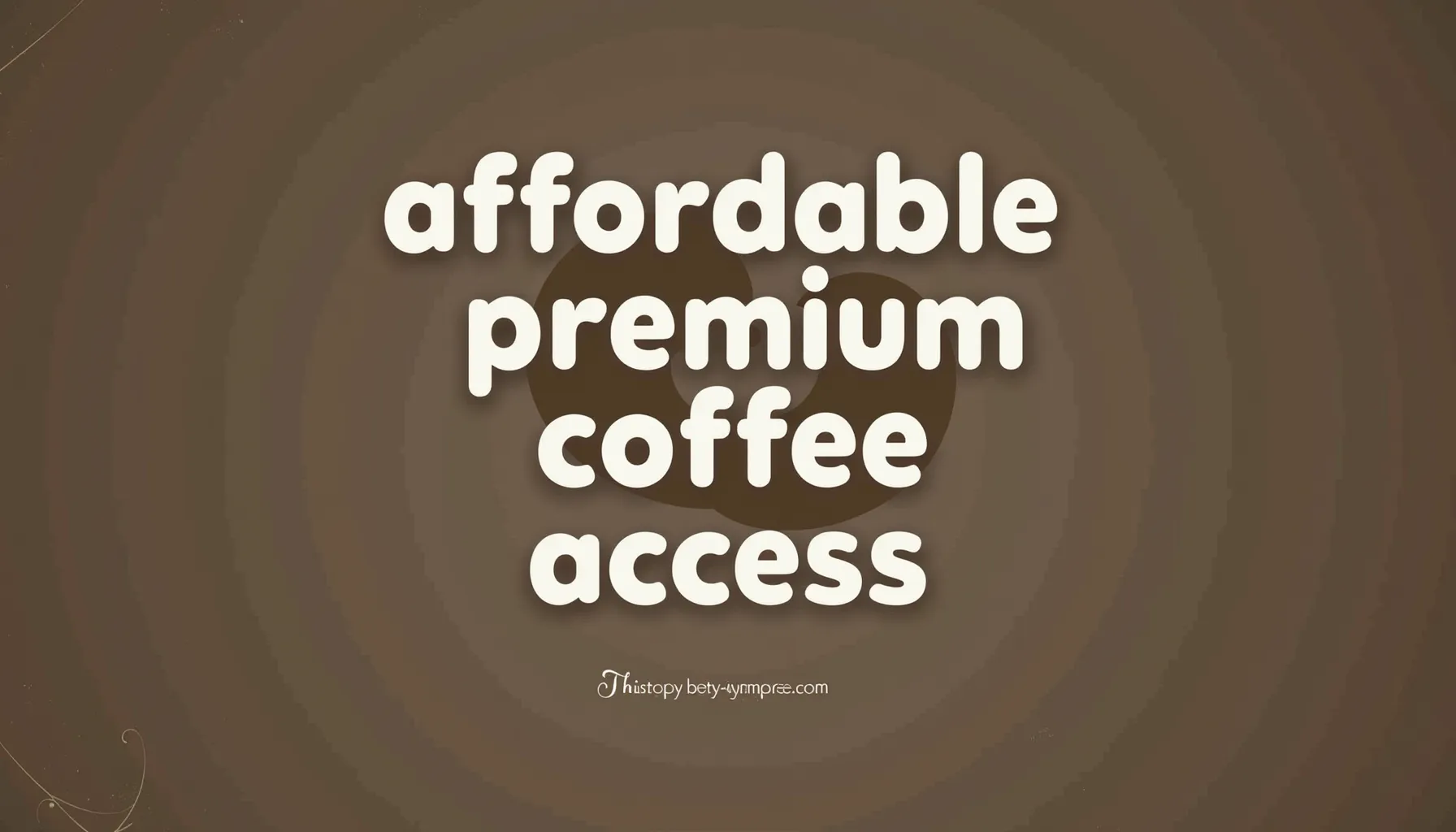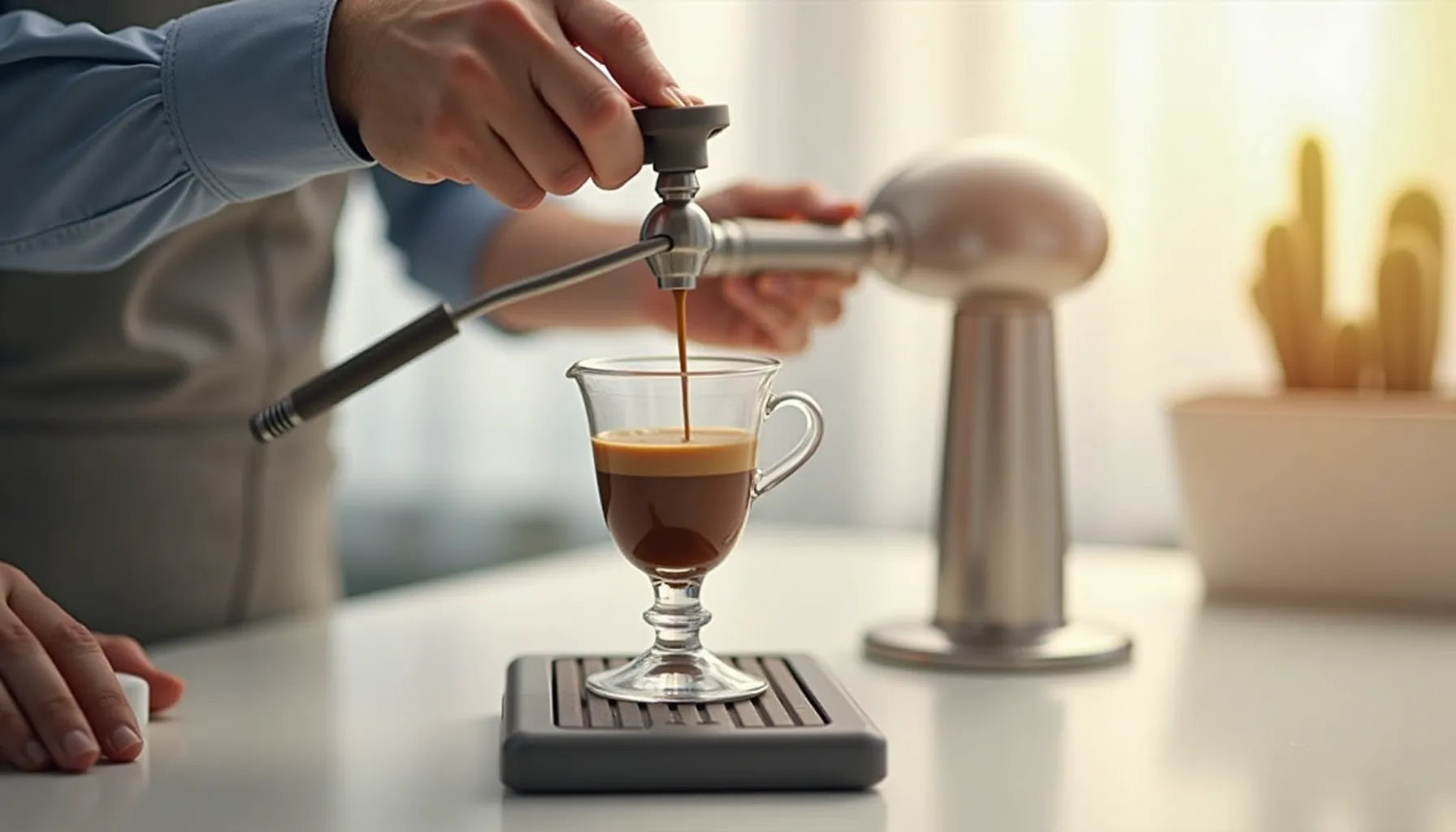As we look ahead to coffee shop trends 2025, it's clear that the industry is on the brink of exciting transformations. With the rise of sustainability and a shifting consumer focus on authentic experiences, coffee enthusiasts and business owners alike are navigating an evolving landscape. Understanding these trends is crucial—not just for staying competitive, but for creating a community around a shared love for coffee.
In this article, we'll delve into six key areas shaping the future of coffee shops, from enhancing customer experiences to embracing sustainability practices. Whether you're a seasoned barista or just someone who enjoys a good cup of joe, these insights will help you appreciate the dynamism of the coffee industry.
Key Takeaways
- Experience Revolution: Coffee shops are becoming centers for community and events.
- Genuine Sustainability: Authentic eco-friendly practices are in demand.
- Quality Focus: Specialty coffee is prioritizing quality over quantity.
- Decaffeinated Demand: A significant rise in decaffeinated coffee options is observed.
- Brand Identity: Strong branding and community engagement are vital for success.

The Experience Revolution: Coffee Shops as Community Hubs
The Shift Toward Experiential Offerings
In today’s fast-paced world, consumers crave more than just a caffeine fix—they seek an experience. Coffee shops are evolving into vibrant community hubs, offering everything from art exhibitions to live music nights. This evolution is particularly appealing to Millennials and Gen Z, who are drawn to immersive environments that foster connection. Imagine sipping your favorite espresso while listening to a local band and viewing works from nearby artists; it’s a mini cultural festival!
To tap into this trend, consider transforming your space into a venue for community events. It can be as simple as hosting trivia nights or partnering with local nonprofits. These gatherings not only attract new customers but also build loyalty among existing patrons who appreciate being part of something bigger.
Collaboration with Local Artists and Businesses
Collaborating with local talent can significantly enhance your coffee shop's appeal. By showcasing the work of local artists, you not only beautify your space but also create a sense of pride in the community. For instance, displaying rotating art exhibits or hosting open mic nights fosters an engaging atmosphere that encourages people to gather and connect. These vibrant activities can turn your café into a beloved landmark within the neighborhood.
Creating Unique Ambiance
The right ambiance can make or break a customer’s experience. By curating a thoughtfully designed interior with comfortable seating, soft lighting, and inviting decor, you can create a welcoming environment that encourages patrons to linger. A well-designed space can also facilitate meaningful interactions, further solidifying your coffee shop as a community hub.
Sustainability: Going Beyond the Buzzword
The Demand for Authentic Eco-Friendliness
More than a trend, sustainability is a core expectation for today’s consumers. Shoppers are growing increasingly skeptical of brands that claim eco-friendliness but fail to back it up with concrete actions. Authentic sustainability practices aren't just beneficial for the planet; they're a unique selling proposition that can set your coffee shop apart. This includes sourcing fair-trade beans, utilizing biodegradable packaging, and implementing energy-efficient equipment.
To truly resonate with your audience, share your sustainability journey openly. Consider incorporating signage that details your sustainable initiatives, or even create a blog section on your website to educate customers about your efforts.
Success Stories of Sustainable Practices
Many coffee shops have successfully integrated sustainability into their core business model. For example, a café that refrains from using plastic straws or offers discounts for customers who bring their own reusable cups not only makes a positive impact but also attracts environmentally-conscious customers. Such practices can enhance customer loyalty while also appealing to like-minded individuals who value sustainable choices.
Measuring Your Sustainability Impact
Rather than leaving your efforts to guesswork, use tools and metrics to track your sustainability progress. Monitoring your waste management and energy consumption can illuminate areas for improvement. Sharing these achievements with your customers fosters transparency and builds trust, as they see your commitment reflected in real results.
Specialty Coffee: Quality Over Quantity
The Rise of Single-Origin and Unique Blends
As the coffee culture matures, customers are becoming increasingly discerning about their brews. The shift towards specialty coffee, with a focus on single-origin and unique blends, reflects this demand for quality. Offering meticulously sourced beans that highlight their origin allows patrons to embark on a flavorful journey, appreciating the nuances of different coffee regions.
This trend invites you to refresh your coffee menu by highlighting the stories behind your beans. Educational elements like tasting notes or guided tastings can enhance their experience and infuse novelty into every cup.
Advanced Brewing Techniques
To complement the quality of your specialty coffee, adopting advanced brewing techniques becomes essential. Methods such as pour-overs or siphon brewing create a unique, hands-on experience that elevates the standard coffee service. These techniques can not only improve flavor but also mesmerize customers, making the brewing process an event in itself.
By investing in proper training for your baristas, you can ensure they become coffee experts, ready to educate customers about the craft behind their cup, creating a deeper connection to the drink.
Educating Consumers on Coffee Quality
One of the most effective ways to celebrate quality coffee is through education. Consider hosting workshops that delve into various aspects of coffee—from bean origins to brewing methods. This knowledge not only empowers customers but also nurtures a community of informed coffee lovers who appreciate your offerings beyond just a caffeine kick.
The New Age of Decaf: A Shift in Consumer Preferences
Understanding the Growth of Decaffeinated Coffee
Once considered a humble alternative for those sensitive to caffeine, decaffeinated coffee is now experiencing a renaissance. Recent market data illustrates a remarkable 7% rise in demand, signaling a change in consumer preferences. This trend suggests that more people are looking to enjoy coffee without the jitters, embracing decaf as a viable option on par with its caffeinated counterparts.
Understanding this shift is vital for coffee shops aiming to cater to diverse consumer needs. Offering compelling decaf options not only broadens your menu but also positions your café as a customer-centric establishment dedicated to meeting preferences. Featuring high-quality decaf can easily attract casual drinkers who want to enjoy a cup any time of day, further expanding your customer base.
Innovative Decaffeination Techniques
Gone are the days when decaf was synonymous with inferior taste. Thanks to advancements in decaffeination techniques, cafés can now offer flavorful, aromatic options that rival traditional brews. Processes like the Swiss Water Method or CO2 extraction retain the beans’ natural flavors while eliminating caffeine without compromising quality.
Make it a point to share these techniques with your customers. Highlighting your commitment to offering high-quality decaf can transform perceptions and encourage people to give it a try, reinforcing their choice of your coffee shop over others.
Marketing Decaf as a Premium Product
The growing popularity of decaf provides an excellent opportunity for strategic marketing. Instead of positioning decaffeinated coffee as an afterthought, treat it as a premium offering. Consider creating eye-catching menus or displays that emphasize the craft behind your decaf selections.
Engaging storytelling can also enhance your marketing efforts. Share the unique qualities of the beans you choose, how they are decaffeinated, and the flavor profiles customers can expect. By highlighting these aspects, you can foster a sense of appreciation and elevate the status of decaf among your offerings.
Healthy Indulgences: The Trend Towards Wellness
Crafting a Health-Conscious Menu
Today's consumers are more health-conscious than ever, and this shift is reflected in their choices at coffee shops. Incorporating healthful ingredients into your menu can set your café apart and attract a wider audience. Think beyond standard pastries and consider items that cater to dietary preferences, such as gluten-free or vegan options.
Emphasizing nutritious superfoods—like chia seeds, turmeric, or matcha—can spark interest among health-focused customers. Not only does this expand your menu, but it also shows that your establishment cares about customer well-being, promoting a healthier lifestyle through delicious indulgences.
The Rise of Plant-Based Milk Alternatives
As the demand for plant-based diets increases, so does the popularity of alternative milks. Options like oat, almond, and coconut milk are no longer just supplementary; they’re often the first choice for many customers. These alternatives not only cater to lactose-intolerant patrons but also resonate with those who choose plant-based lifestyles.
By offering a range of high-quality plant-based milk options, you can enhance the flavor profiles of your drinks while appealing to a growing segment of the health-conscious market. Educate your team about each type’s flavor and texture to guide customers toward the perfect pairing.
Marketing Health Benefits
Knowing how to highlight the health benefits of your menu items can significantly elevate your brand. When promoting coffee drinks or food items, consider sharing nutritional information or unique benefits, such as boosting energy or offering antioxidant properties.
Utilizing social media can amplify this message—sharing enticing images alongside informative posts about the health advantages of your selections can attract new customers. This gives your coffee shop an edge, positioning it as a go-to destination for those seeking nourishing yet tasty options.
Crafting Your Brand Identity: Standing Out in a Competitive Market
Building a Strong Brand Narrative
In a world saturated with coffee options, a strong brand narrative can set you apart from the crowd. Your story should resonate with your audience, conveying what your coffee shop values—be it community, sustainability, or quality craftsmanship. The more relatable and compelling your narrative, the more likely you are to forge genuine connections with customers.
Consider sharing your journey, the inspiration behind your coffee shop, and the values that guide your business. Authentic storytelling creates emotional loyalty amongst customers, encouraging them to choose your café over competitors.
Visual Branding Trends for 2025
Visual branding plays a crucial role in how consumers perceive your business. Minimalist designs interwoven with vibrant colors are becoming increasingly appealing. A clean, cohesive aesthetic can grab attention, invigorate your space, and create a recognizable identity.
From your logo to packaging and interior design, maintaining consistency with your visual identity helps customers instantly recall your brand. Engaging graphics and thoughtful layouts can elevate the overall experience, making your café memorable and inviting.
Engagement through Social Media and Community Initiatives
Finally, leveraging social media is essential for building a robust brand identity that resonates with your audience. Engage with followers through fun campaigns, behind-the-scenes content, or customer spotlights. Encourage interaction by inviting reviews and sharing user-generated content, fostering a sense of community.
Additionally, consider participating in community events, collaborating with local businesses, or championing social causes. Engaging at a grassroots level enhances your visibility while showing that you genuinely care about your community, further solidifying your brand’s presence in the market.

Looking Ahead: The Future of Coffee Shops
As we wrap up our exploration of coffee shop trends 2025, it’s clear that the coffee landscape is set to transform in fascinating ways. The shift towards creating captivating experiences, embracing sustainability, and prioritizing quality in every cup is not just a fleeting trend—it's a fundamental change in how coffee shops connect with their communities and customers. By fostering a unique ambiance, supporting local initiatives, and incorporating health-focused offerings, owners can create spaces that resonate deeply with a diverse clientele.
Moreover, the evolving consumer preference for decaf and plant-based alternatives reflect a growing awareness of health and wellness in our daily choices. This invites coffee shops to innovate and adapt, ensuring they don’t just serve coffee but create memorable experiences and foster community connections. Looking forward, the coffee shop that can effectively blend quality, sustainability, and an engaging customer experience will not just survive but thrive in this exciting new era.
Your Questions Answered
What are the main coffee shop trends for 2025?
The key trends include a focus on experiential offerings, sustainability practices, specialty coffee quality, and an increased demand for healthy options like plant-based milks and decaffeinated coffee.
How can coffee shops create a better customer experience?
By transforming their spaces into community hubs, hosting local events, and providing engaging ambiance, coffee shops can enhance customer experiences and foster loyalty.
What role does sustainability play in coffee shops today?
Sustainability is crucial as consumers increasingly seek out brands that genuinely commit to eco-friendly practices. This can include sustainable sourcing, waste reduction, and promoting reusable items.
How can coffee shops effectively market decaf coffee?
Cafés can market decaf as a premium product by highlighting unique flavors and innovative decaffeination methods, appealing to both health-conscious consumers and those looking for great taste without the jitters.
Why is branding important for coffee shops?
A strong brand narrative helps coffee shops connect emotionally with customers. Engaging visuals and a consistent message can set them apart in a competitive market and build lasting loyalty.












